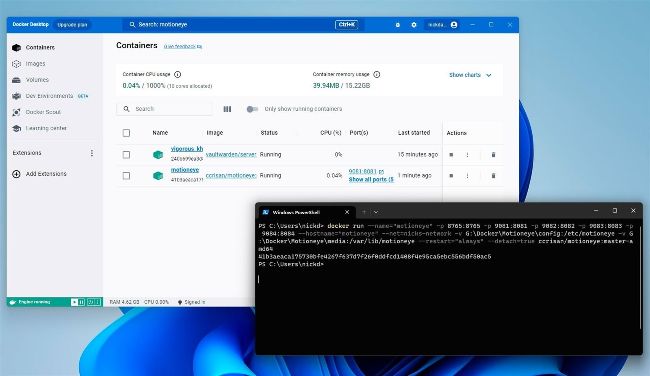Docker vs Podman
What’s best for running virtual machines for free?

Docker remains a compelling choice, but is geared more towards developers than home users.
NOT EVERYONE NEEDS
a full-blown virtual machine to run certain types of software—Docker is a lightweight alternative that uses containers to wrap up Linux applications and dependencies in a minimal environment. Readers of this magazine will have seen our many tutorials for Docker over the past few years and got a good idea of how it works.
But Docker isn’t perfect—it was originally designed for development rather than production-ready use, which has led to question marks over security and stability. Luckily, in 2015, Docker created the Open Containers Initiative (OCI), which has seen several alternatives emerge that can run the same containers. These include Podman, aimed more at production environments (and perfect for home users).
Developed by Red Hat, it strives to remain broadly compatible with Docker while employing a different means of managing containers to improve security and stability. Podman shares much of Docker’s command-line syntax (simply prefix commands with ‘podman’ rather than ‘docker’), making it relatively easy to switch from one to the other—at least for simple containers.